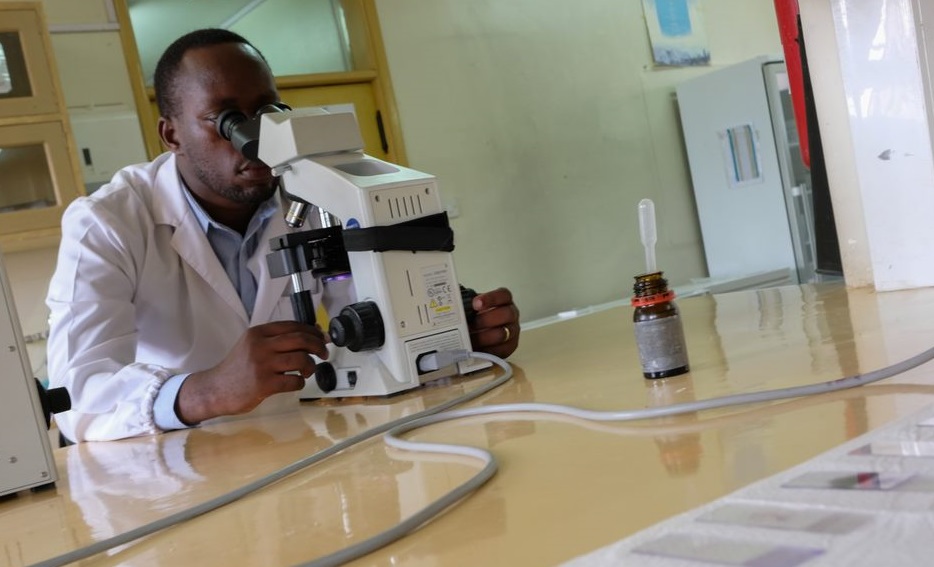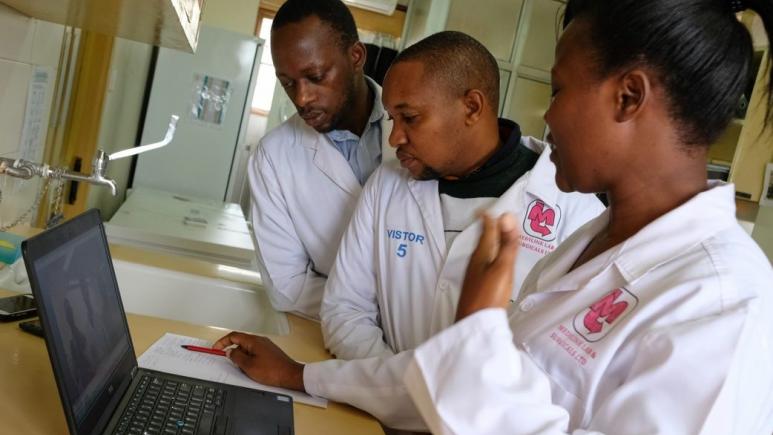Epicentre Research Centre in Uganda is among accredited Laboratories to carry out COVID-19 testing
While the Ministry of Health (MoH) has announced a number of cases of COVID-19 of 4,317 in January, a decrease from the 14,757 detected in December 2020. It is important to continue to identify, isolate and trace cases throughout the country, especially in view of the emergence of numerous cases in neighboring countries, particularly due to the spread of the South African variant.
Located in the heart of the Mbarara University Hospital Centre, comprising the Mbarara University of Sciences and Technology (MUST) and the Mbarara Regional Referral Hospital (MRRH), the Epicentre research centre has been conducting clinical research activities for over 20 years and is currently developing a lot of projects around tuberculosis. Dan Nyehangane takes stock of the Centre's new mission.

How many reference laboratories for COVID tests are there in Uganda?
Dan Nyehangane: In total there are 20 reference laboratories. 15 of these are based in Kampala and Entebbe areas. Five are based out of Kampala itself; three government mobile laboratories have been set up in northern, eastern, and southern Uganda; In the south the tests are carried out by a research laboratory managed by an NGO, and Epicentre Lab is covering South-Western Uganda and potentially all of Western Uganda.
What does this imply?
D. N.: This implies that the Epicentre lab is the only one in the Western and South-Western region with about 8 ports of entry into the county. The lab will have a great impact in preventing delays in testing since some of the areas that the lab will serve are approximately 9 hours away from Kampala and due to transport challenges, samples have been taking up to 4 days from the time of collection before reaching the testing lab. Some facilities near the Rwanda border had resorted to sending their samples to be tested in Kigali-Rwanda which has international implications.
How many tests does it represent?
D. N.: This represents approximately 300-500 samples per day, but we may only be able to handle up to 200-300 samples per day of these. We have completed evaluating the test kits supplied by the Ministry of Health testing samples from the public commences this week.
What will be the impact on your other activities? how will you manage this extra activity?
D. N.: This activity is demanding on reagents, consumables, Human resources, space and equipment usage. Our usual activities involve research studies that have clearly defined budgets for all needs, which is not the case here. On the other hand, Epicentre works quite closely with the Ministry of Health and Mbarara Regional Referral Hospital (MRRH) in this activity. The Ministry of Health through Mbarara Regional Referral Hospital has dedicated two staff to support this activity and we will receive testing kits as well as consumables for this work. The Human resources are certainly insufficient, and we will continue to monitor our workload vis-à-vis HR needs and engage stake holders at the Ministry of Health for further facilitation as we progress.







